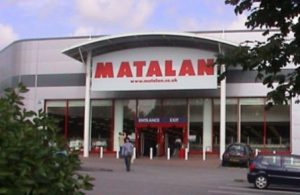Controversial Leicester firm supplying boohoo again – reports

A Leicester clothing manufacturer is again supplying fast-fashion retailer boohoo despite being previously cast aside by the firm after a modern slavery scandal in 2021.
Boohoo is reportedly buying clothes from a company called GN Euro, which it “disengaged” four years ago.
GN Euro, based in Leicester, has set up a site in Morocco under a new name, according to The Telegraph, and is supplying boohoo from a Tangier factory using the company name Euro Touch.
Boohoo faced an independent review in 2021 following claims of workers being paid less than the minimum wage.
A spokesperson for the firm said: “Boohoo is open and transparent about its entire supply base, with all our suppliers listed and regularly updated on the company’s website. We do not work with suppliers which cannot adhere to our highest standards.
“We only on-board a supplier or factory that goes through our strict onboarding process and due diligence checks, no exceptions. Every supplier signs our code of conduct, has a valid third-party social compliance audit and is visited regularly by our ethical teams on the ground for an audit.”
Meanwhile, on Friday (November 15), Mike Ashley’s Frasers Group upped its stake in boohoo amid a tense stand-off between the two firms ahead of a crucial meeting next month.
Frasers is boohoo’s largest shareholder and hoovered up a further stake on Friday to take its holdings to 28.01%.
This morning, Monday November 18, boohoo revealed that the retail share placing had raised just £0.4 million, after saying could raise up to £6m. However, the company has conditionally raised total gross proceeds of approximately £39.3 million as part of a clawback process.
AJ Bell investment analyst Russ Mould said retail investors were put off by stock being priced at a premium to the market value at the time of the fundraise. “The retail component fell flat on its face. Boohoo had offered up to £6 million worth of shares, but it only received orders for £388,508, representing a mere 6.5% of the available stock.
“Retail investors might have been turned off by the stock being priced at a premium to the market value at the time of the fundraise. They could have just placed an order on the market for shares to increase their position without having to pay over the odds. It feels as if Boohoo offered the retail component on the grounds of inclusivity, rather than realistically expecting the general public to pay up for stock.
“Share placings at a premium to the market price aren’t that common, certainly not with a company going through a bad patch such as Boohoo. Nevertheless, institutional investors are sometimes happy to pay a small premium if it means getting their hands on a decent block of shares rather than having to pick up small parcels on the market.”








